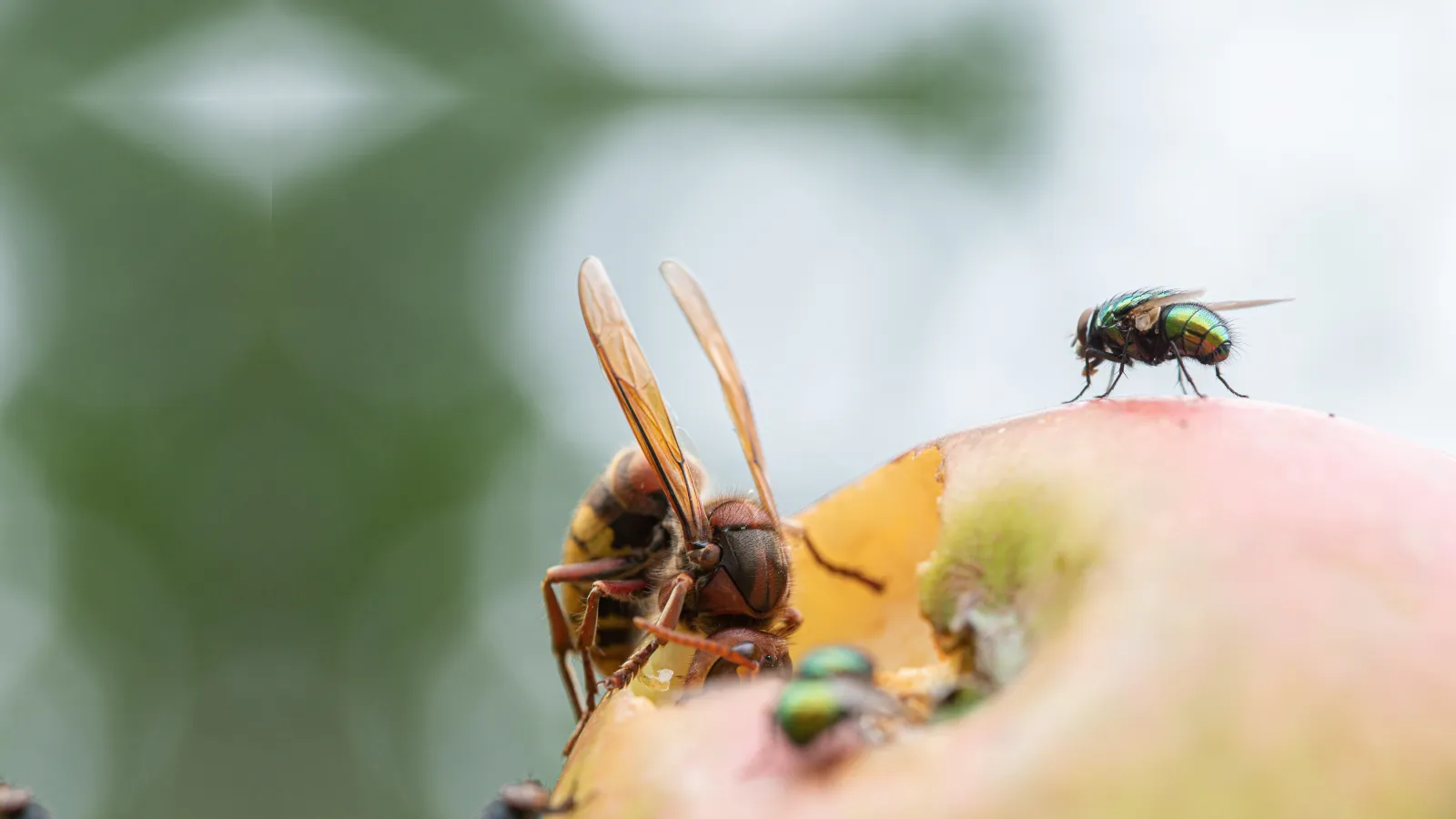
Fruit Flies
Latin Name: Drosophila melanogaster
Fruit flies are one of the most common household pests. These creatures belong to the family Drosophilidae and are found anywhere that food is rotting or fermenting. Adult fruit flies typically are about ⅛ of an inch long with tan upper bodies, black abdomens, and red or dark eyes. If you've ever kept fruits or vegetables out on a countertop, chances are good that you have encountered these pests before.
Fruit flies do feed on decaying fruits and vegetables, but they can also breed in decaying meat, spilled soda, and alcohol. The only requirement is that there be a moist layer of fermenting material. The flies' relatively minimal requirements for breeding means that they can be active indoors year-round, although they tend to be more prevalent in the late summer and fall when more produce is ripening.
These flies can be tough to eliminate, because they can breed in just about any moist, organic materials, and they can become an issue quickly. A female fruit fly can lay up to 500 eggs and they can hatch in as little as 30 hours. The cycle from egg to adult can take just one week and adult fruit flies can live up to a month.
Although fruit flies are mostly harmless, they can contaminate food with bacteria, and they are a nuisance to live with. To help prevent the entry of adult fruit flies, ensure that your windows and doors are properly screened. Beyond that, you will want to eliminate their food sources as much as possible. Try to eat foods left on countertops before they become too ripe or move them into the fridge. When bringing in new fruits and vegetables, inspect them for damage beforehand and keep all new additions in the fridge until you are certain your previous fruit fly infestation is over. Finally, regularly clean your garbage disposals, recycling bins, and trash cans to eliminate fruit fly breeding grounds. If you have tried all of this and you are still experiencing issues with fruit flies, contact Palmetto Exterminators.
Similar Pests: Housefly, Fungus Gnats